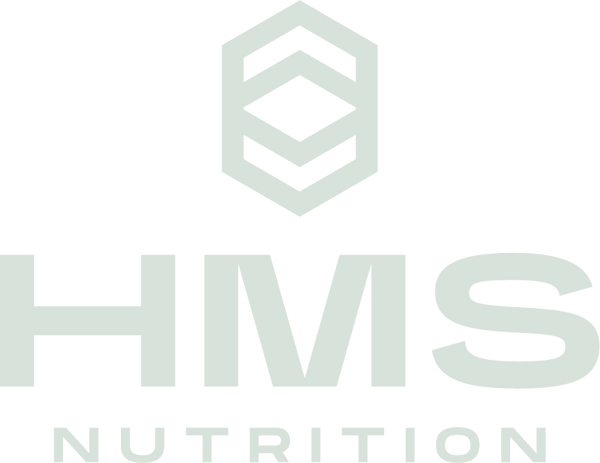
Are You Making These 7 Mistakes Leading to Vitamin C Deficiency?
Did you know that vitamin C deficiency affects millions of people worldwide? Despite being easily preventable, many adults still fall short of their daily vitamin C needs. Vitamin C is crucial for maintaining overall health, especially for those of us aged 35-55. It supports immune function, skin health, and even helps with the absorption of other nutrients. In this article, we'll explore seven common mistakes that can lead to vitamin C deficiency and how you can avoid them.
Mistake 1: Skipping Fresh Fruits and Vegetables
The Problem
In our busy lives, it's easy to grab processed foods or skip meals altogether. Unfortunately, this habit can severely reduce your intake of fresh fruits and vegetables, which are primary sources of vitamin C.
The Impact
Without enough fresh produce, your vitamin C levels can drop significantly. This can lead to symptoms like fatigue, frequent infections, and poor skin health. Over time, chronic vitamin C deficiency can result in scurvy, a disease characterized by anemia, gum disease, and skin problems. Additionally, low vitamin C levels can impair the body’s ability to repair tissues and heal wounds, leading to longer recovery times from injuries and infections.
The Solution
Incorporating more fruits and vegetables into your diet doesn't have to be a chore. Here are some simple tips:
Smoothies: Blend fruits like oranges, strawberries, and kiwis with some greens for a nutrient-packed start to your day.
Salads: Add bell peppers, tomatoes, and spinach to your salads for a vitamin C boost.
Snacks: Keep citrus fruits, berries, and carrot sticks handy for a quick and healthy snack.
Mistake 2: Relying Too Much on Supplements
The Problem
While vitamin C supplements can help bridge the gap, relying solely on them can be problematic. Supplements often lack the other essential nutrients and fiber found in whole foods.
The Impact
Over-reliance on supplements means you might miss out on the synergistic benefits of eating whole foods. Whole foods provide a complex mix of nutrients that work together to promote health. By relying solely on supplements, you may not be getting these additional nutrients, which can affect your overall health.
The Solution
Focus on a balanced diet rich in natural sources of vitamin C, using supplements as a backup. Foods high in vitamin C include:
- Citrus Fruits: Oranges, grapefruits, lemons
- Berries: Strawberries, raspberries, blueberries
- Vegetables: Bell peppers, broccoli, Brussels sprouts
Foods high in vitamin C include:
Citrus Fruits: Oranges, grapefruits, lemons
Berries: Strawberries, raspberries, blueberries
Vegetables: Bell peppers, broccoli, Brussels sprouts
When choosing a vitamin C supplement, it’s crucial to select one of high quality and that prioritizes bioavailability. Here are some tips:
- Quality Matters: Look for supplements that have been third-party tested for purity and potency. This ensures you are getting what the label claims without harmful contaminants.
- Bioavailability: Choose supplements that contain vitamin C in forms that are easily absorbed by the body, such as ascorbic acid, sodium ascorbate, or calcium ascorbate. Liposomal vitamin C is another option known for its high absorption rate.
- Avoid Fillers: Select products with minimal additives and fillers. The simpler the ingredient list, the better.
- Dosage: Follow recommended dosages to avoid overconsumption, which can lead to adverse effects. Consult with a healthcare provider to determine the appropriate dosage for your needs.
By focusing on a balanced diet and making informed choices about supplements, you can ensure that you are meeting your vitamin C needs effectively and safely.
Mistake 3: Cooking Methods That Destroy Vitamin C
The Problem
Certain cooking methods, like boiling or overcooking, can destroy the vitamin C content in your food.
The Impact
When you cook vegetables at high temperatures for long periods, you can significantly reduce their vitamin C levels. Vitamin C is a water-soluble vitamin that is sensitive to heat, light, and air. Boiling vegetables can cause up to 50% of their vitamin C content to be lost in the cooking water. This reduction in vitamin C can weaken your immune system, decrease collagen production, and impair iron absorption, leading to symptoms like bruising, bleeding gums, and general weakness.
The Solution
Choose cooking methods that preserve vitamin C, such as:
Steaming: Keeps most of the nutrients intact.
Blanching: Quickly boiling vegetables for a short time and then plunging them into ice water helps retain vitamin C.
Eating Raw: Whenever possible, eat your fruits and vegetables raw to maximize their nutrient content.
Mistake 4: Ignoring Seasonal Fruits and Vegetables
The Problem
Out-of-season produce is often less fresh and can contain lower levels of nutrients, including vitamin C.
The Impact
Consuming fruits and vegetables that aren't in season can lead to a lower intake of vitamin C, as these items are often harvested before peak ripeness and lose nutrients during transportation.
The Solution
Focus on seasonal fruits and vegetables to ensure you're getting the freshest and most nutrient-dense options. For example:
Winter: Citrus fruits like oranges and grapefruits.
Spring: Strawberries, kiwis, and broccoli.
Summer: Berries, bell peppers, and tomatoes.
Fall: Apples, Brussels sprouts, and cauliflower.
Mistake 5: Excessive Alcohol Consumption
The Problem
Alcohol can interfere with the absorption and utilization of vitamin C in your body.
The Impact
Excessive alcohol intake can deplete your body's vitamin C levels, weakening your immune system and overall health. Alcohol can damage the lining of the intestines, reducing the body's ability to absorb vitamins and minerals, including vitamin C. Chronic alcohol consumption can lead to liver damage, which further impairs the metabolism and storage of vitamins. This deficiency can manifest as frequent infections, slow wound healing, and increased oxidative stress, which accelerates aging and chronic disease development.
The Solution
Moderate your alcohol consumption and ensure you're compensating with vitamin C-rich foods. Follow the U.S Dietary Guidelines by aiming for no more than one drink per day for women and two for men. Include foods like:
Citrus fruits: Oranges, lemons, limes
Leafy greens: Kale, spinach
Bell peppers: Red, yellow, green
Mistake 6: Eating Ultra-Processed Snacks
The Problem
Common snack choices like chips, cookies, and candy lack nutritional value, including vitamin C.
The Impact
Relying on these snacks contributes to overall poor nutrient intake, making it harder to meet your vitamin C needs. This can lead to reduced immune function, increased risk of chronic diseases, and poorer skin health. Vitamin C is essential for collagen synthesis, so a vitamin deficiency can result in dry, rough skin, and a higher likelihood of developing wrinkles and other signs of aging.
The Solution
Swap out unhealthy snacks for vitamin C-rich alternatives. Here are some ideas:
Citrus Slices: Oranges, tangerines, and grapefruits.
Berries: Strawberries, blueberries, and raspberries.
Vegetable Sticks: Bell peppers, carrots, and cucumber with hummus.
Mistake 7: Stress and Lifestyle Factors
The Problem
Modern life is filled with stressors, from demanding jobs to personal responsibilities and everything in between. Chronic stress can wreak havoc on your health, including your vitamin C levels. When you’re constantly stressed, your body’s demand for vitamin C increases significantly. This is because vitamin C is crucial for the production and regulation of cortisol, the hormone released in response to stress.
Moreover, unhealthy lifestyle habits such as smoking, poor diet, lack of sleep, and sedentary behavior exacerbate this problem. Smokers, for example, require more vitamin C than non-smokers because smoking increases oxidative stress and free radicals in the body, depleting vitamin C levels. Poor dietary choices, like consuming too much processed food and not enough fresh fruits and vegetables, further reduce your intake of this vital nutrient.
Lack of sleep and physical inactivity can also contribute to higher stress levels, creating a vicious cycle. When you don’t get enough sleep, your body’s ability to handle stress diminishes, leading to even greater cortisol production and an increased need for vitamin C. Similarly, a sedentary lifestyle can lead to weight gain and other health issues that place additional stress on the body, increasing the demand for vitamin C.
The Impact
Chronic stress and unhealthy lifestyle habits can lead to a significant depletion of vitamin C in your body. This can result in a weakened immune system, making you more susceptible to infections and illnesses. Additionally, low vitamin C levels can impair wound healing, reduce collagen production, and increase the risk of developing chronic diseases such as heart disease and diabetes. The combined effect of stress and low vitamin C can also lead to increased oxidative stress, which accelerates the aging process and contributes to various health problems.
The Solution
Manage stress and adopt healthier lifestyle habits to maintain adequate vitamin C levels. Consider these tips:
Stress Management: Practice mindfulness, yoga, or deep breathing exercises.
Regular Exercise: Helps reduce stress and improve overall health.
Balanced Diet: Focus on a diet rich in fruits, vegetables, and lean proteins.
Conclusion
Making small, manageable changes to your diet and lifestyle can significantly improve your vitamin C intake and overall health. By incorporating more fresh fruits and vegetables, choosing the right cooking methods, moderating alcohol consumption, and managing stress, you can avoid the common pitfalls that lead to vitamin C deficiency. Take the time to assess your current habits and create a plan to address any of the mistakes we've discussed. Remember, it's the small, consistent efforts that lead to lasting health benefits.
Additional Resources
Recipes: High-Vitamin C Recipes | Food Network Healthy Eats: Recipes, Ideas, and Food News | Food Network
HMS Vitamin C: Acerola Cherry and Citrus Vitamin C - 90 Capsules – HMS Nutrition
Purchase Vitamin C on Amazon: Amazon.com: HMS Nutrition Acerola Cherry and Citrus Bioflavonoids Vitamin C Supplement - Supports Antioxidant Health, Immune Booster - Vegan, Organic - 90 Capsules, 90 Day Suply : Health & Household
